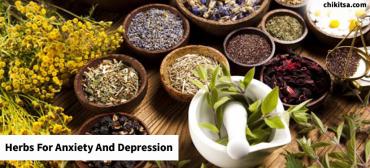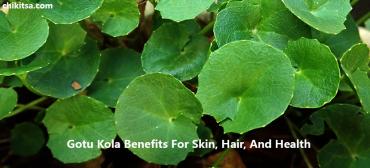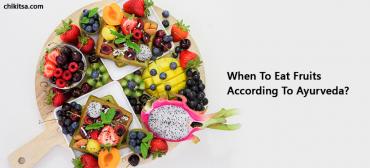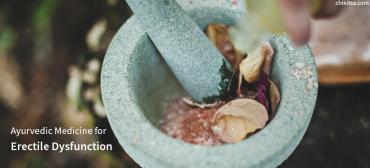List Of Foods To Eat According To Your Dosha

Leading a healthy life is very important for everyone, and for that, we require a balanced diet that consists of the right proportion of protein, carbohydrates, fats, minerals, and vitamins, etc.
When it comes to Ayurveda, it has recognized a special diet that nourishes your body and also restores the balance of 'Tridoshas' which is very important for maintaining health. Considering our dosha, or our constitutional type, some foods can be advantageous, and others should be absolutely avoided.
These same foods can have the opposite effect on another dosha. According to the science of Ayurveda, the right diet is the foundation of healing. For gaining our health and vitality, the ideal diet is one that balances our doshas.
Below is the recommended diet to balance each of the three doshas.
Diet For VATA Dosha
Vata dosha affects efficient flow and motion in the body. Characteristics of Person with Vata Dosha:
- Having dry and rough skin/body
- Being underweight
- Worrying/thinking incessantly
- Being restless or agitated constantly
- Constipation
- Insomnia
- Being forgetful
- Aching joints with sound on movements
- Being easily tired
If you have one of these symptoms, you need to balance your Vata Dosha. The attributes of Vata are namely cold, dry, light, hard, and rough.
Foods you should consume
Too much Vata can be checked with nutritive and tissue-building foods that are warm, moist, heavy, soft, and oily. You can also consume foods with a sweet, sour, and salty taste. Ghee, soft dairy products, wheat, rice, corn, and bananas, are the kinds of food you should be having. If you have Vata, try having hot cereal with ghee, hearty soups and vegetables, and whole cooked grains and chapattis. Spicy foods in moderation are also recommended.
The vegetables you should be consuming include asparagus, beets, carrots, cucumber, green beans, okra or bhindi, onions, garlic, radishes, turnips, and sweet potatoes. When it comes to fruits, you can have all fruits which a sweet taste like, bananas, coconuts, dates, mangoes, etc. Include grains such as oats, rice, and wheat in your diet.
Foods you should avoid
Foods that are known to aggravate Vata qualities are crackers, frozen desserts, and large amounts of raw vegetables and salads. Also, avoid refined foods such as white flour and sugar, having light and dry qualities. Steer clear of pungent, bitter, astringent; light, dry, cold foods, stimulants such as smoking, alcohol, junk food, sugar, green tea, and teas with long leaves, brown rice.
Exclude vegetables such as cabbage, cauliflower, celery, brinjal, leafy green vegetables, mushrooms, peas, peppers or Simla Mirch, potatoes, sprouts, tomatoes, zucchini from your diet. Even if you do have these vegetables, make sure to cook them properly in pure desi ghee or unrefined til oil. Tomatoes should absolutely be excluded except maybe as a small addition to your salads. Avoid/moderate consumption of fruits such as apples, pears, and pomegranates. Almost all spices and herbs can be consumed in moderation. When faced with aggravated Vata, coriander seeds or dhania powder, fenugreek or methi seeds, saffron, turmeric, parsley should be taken with extra care. Don’t consume hot, dry spices such as dried chili, which would only increase the dryness.
Diet For PITTA Dosha
Pitta dosha affects the metabolism in the body. Characteristics of a person with Pitta Dosha:
- Being frustrated or angry
- Skin prone to rashes
- Being irritable or impatient
- Premature graying or thinning of hair
- Waking up in the early & difficulty in falling asleep again
- Discomfort in hot weather
- Experiencing hot flashes
- Having excess stomach acid
- Experiencing loose bowel movements
- Moderate memory
If you have one of these symptoms, you need to balance your Pitta Dosha. Pitta's attributes are hot, sharp, oily, and light.
Foods you should consume
You can balance increased Pitta by consuming foods that are cool, dry, and heavy with a mild, naturally sweet, bitter, or astringent flavor. Milk, rice, beans, steamed vegetables, and fruit are recommended for Pitta people. Mild spices such as cumin, coriander, and cilantro are also considered good for Pitta.
Almost all vegetables and fruits can be consumed. Grains like, barley, oats, wheat, and parboiled are beneficial.
Foods you should avoid
Make sure to stay away from any pungent and oily foods such as curry, fried foods, and spicy condiments, as well as spices like cayenne, garlic, and dry ginger. Avoid anything that is sour, salty, hot, and light. Smoking, alcohol, coffee, pickles, vinegar, fried foods, spicy foods, fermented foods, curds, almond, corn, til, mustard oil should be avoided.
Choose to opt for vegetables like beets, carrots, brinjal, garlic, hot peppers, onions, spinach, and tomatoes out from your diet. Sour and unripe fruits are best avoided. If you are faced with increased Pitta, don’t consume grapefruit, papayas, peaches, bananas, apricots. Also avoid brown rice, corn, millet, and rye.
Diet For KAPHA Dosha
Kapha dosha affects the fluid balance in the human body. Characteristics of a person with Kapha Dosha;
- Being overweight
- Being lethargic
- Experiencing sinus/cough problems
- Sleeping long hours, yet fatigued
- Oily skin and hair
- Discomfort in cold weather
- Feeling lazy
- Experiencing bloating
- Feeling stiff and heavy
- Congestion
- Good memory
If you have one of these symptoms, you need to balance your Kapha Dosha. Kapha Dosha consists of cold, heavy, liquid, and unctuous.
Foods you should consume
To keep Kapha in check, consume less amount of food and consider food with Vata properties of light and dry. You can also opt for foods that are dry, hot, or sharp. So, look for foods with pungent, bitter, or astringent tastes. Puffed cereals such as puffed rice or corn; small, astringent grains, like millet, amaranth, and quinoa; and light, bitter vegetables such as leafy greens are among your options. Spices like ginger, turmeric, and chili are usually recommended for Kapha people.
Include light, dry food cooked without too much water, butter, oil, and sugar, stimulating foods (such as ginger, chilies, pickles), raw foods, salads, fruits in your diet. Usually, all vegetables are advised, but if you have Kapha disorders like lung congestion, congestive asthma, sinuses, obesity, heart disease, diabetes, high cholesterol, avoid all sweet and juicy vegetables such as cucumbers, pumpkin family, etc in that case. Apples, apricots, pears, pomegranates, and dried fruits, in general, can be consumed.
When it comes to legumes you can have everything (if Dosha is not aggravated) except for tofu and kidney beans are advisable. Spices like ginger are great for improving your digestion, turmeric is perfect for drying out the mucous, chilies are good for removing mucous.
Foods you should avoid
Foods that increase Kapha are dairy products, wheat, avocados, and oils. Sweet, sour, salty; heavy, oily, cold food should be avoided too. All sweet and juicy vegetables and fruits shouldn’t be consumed. As mentioned before, tofu and kidney beans shouldn’t be included in your diet.
Here's how you can understand your Doshas and follow the diet to maintain good health. The ancient Ayurveda states, "He whose doshas are in balance, whose appetite is good is called a healthy person." His body, mind, and senses remain bliss full.
Continue learning about mind-body healing techniques. Before trying any of these diets, please Consult an Ayurveda Specialist Online to know your body type.










